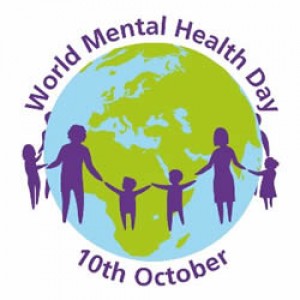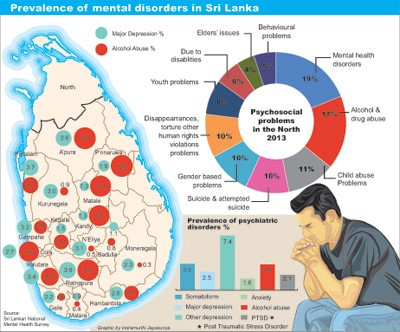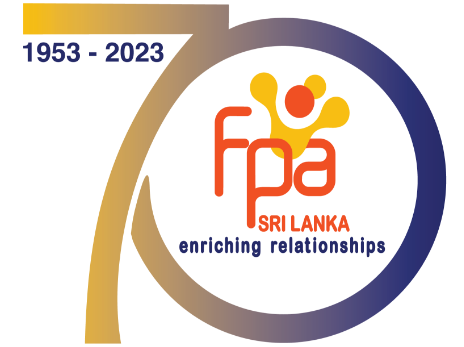World Mental Health Day

The theme of this year’s World Mental Health Day, observed on 10 October, addresses “psychological first aid”. The National Institute of Mental Health, Angoda is having events under the theme “Dignity in Mental Health- Psychological and Mental Health First Aid”. Worldwide commemoration focus will be on support given by people who find themselves in a helping role whether they be health staff, teachers, firemen, community workers, or police officers.
Psychological first aid covers both psychological and social support. The World Heath Organisation says “ the investment in psychological first aid is part of a longer-term effort to ensure that anyone in acute distress due to a crisis is able to receive basic support, and that those who need more than psychological first aid will receive additional advanced support from health, mental health and social services”.
In May 2016 Sri Lanka was hit by severe weather that caused widespread flooding and deadly landslides, which affected 22 of Sri Lanka’s 25 districts. IPPF- GLOBAL SPRINT, in partnership with FPA Sri Lanka, responded to the disaster with prepositioned reproductive health kits and provided Sexual and Reproductive Health (SRH) services in medical clinics, delivered awareness sessions on SRH and gender-based violence (GBV) and provided psychosocial support to affected women and still continue to do so in the ensuing months.
In Sri Lanka, mental health illnesses are perceived in a very negative light, and people who suffer from mental illnesses are still ostracised by society. Problems such as depression and anxiety, are not even considered legitimate illnesses by a large portion of the population.
According to NIMH statistics, one out of five persons in Sri Lanka suffers from a mental illness, and only 20% receive treatment.

A special ongoing programme of FPA Sri Lanka targets patients’ resident at the National Institute of Mental Health, Angoda, including victims of rape and other forms of abuse. Two clinics are held every month at which a full range of Family Planning Services as well and cancer and STI screening and gynaecological counselling is provided.
Personal and confidential counselling services are also available through our Happy Life contact centre. Advice on dealing with SRH health issues as well as with the anxiety and distresses caused by such is provided by well-trained officers.
Our ‘Alokaya’ Counselling Centre, also caters to a diverse range of needs such as couple, relationship, premarital, marital, family and psychosexual counselling. In addition to this, training and awareness programmes catering to the public and private sector are also carried out.
On the 10th of October, Ms Badra from our Alokaya Counselling centre was featured on the "Nuga sevana" prgramme (Rupavahini) from 11.00 am- 11.15am to mark World Mental Health day. The topic was "Psychological First Aid" which is an evidence-informed approach that is built on the concept of human resilience. PFA aims to reduce stress symptoms and assist in a healthy recovery following a traumatic event, natural disaster, public health emergency, or even a personal crisis.
Another condition prevalent today is PTSD, or Posttraumatic Stress Disorder. It is a psychiatric disorder that can occur following the experience or witnessing of a life-threatening events such as military combat, natural disasters, terrorist incidents, serious accidents, or physical or sexual assault in adult or childhood. Persons whose work exposes them to traumatic events or who treat trauma survivors are at risk too. Most survivors of trauma return to normal given a little time. However, some people will have stress reactions that do not go away on their own, or may even get worse over time. These individuals may develop PTSD and additional disorders such as depression, anxiety and substance abuse.
According to the National Center for PTSD , about 7 or 8 out of every 100 people will experience PTSD at some point in their lives. Women are more likely to develop PTSD than men. It is important to remember that not everyone who lives through a dangerous event develops PTSD. In fact, most people will not develop the disorder.
Some factors that increase risk for PTSD include:
- Living through dangerous events and traumas
- Getting hurt
- Seeing another person hurt, or seeing a dead body
- Childhood trauma
- Feeling horror, helplessness, or extreme fear
- Having little or no social support after the event
- Dealing with extra stress after the event, such as loss of a loved one, pain and injury, or loss of a job or home
- Having a history of mental illness or substance abuse
*SPRINT refers to the Sexual and Reproductive Health Programme in Crisis and Post-Crisis Situations, which is funded by the Australia Government and implemented by the International Planned Parenthood Federation (IPPF)
*Statistics - http://www.sundaytimes.lk/131006/news/poor-mental-health-national-institute-cant-cope-with-the-demand-64878.html
.png)

